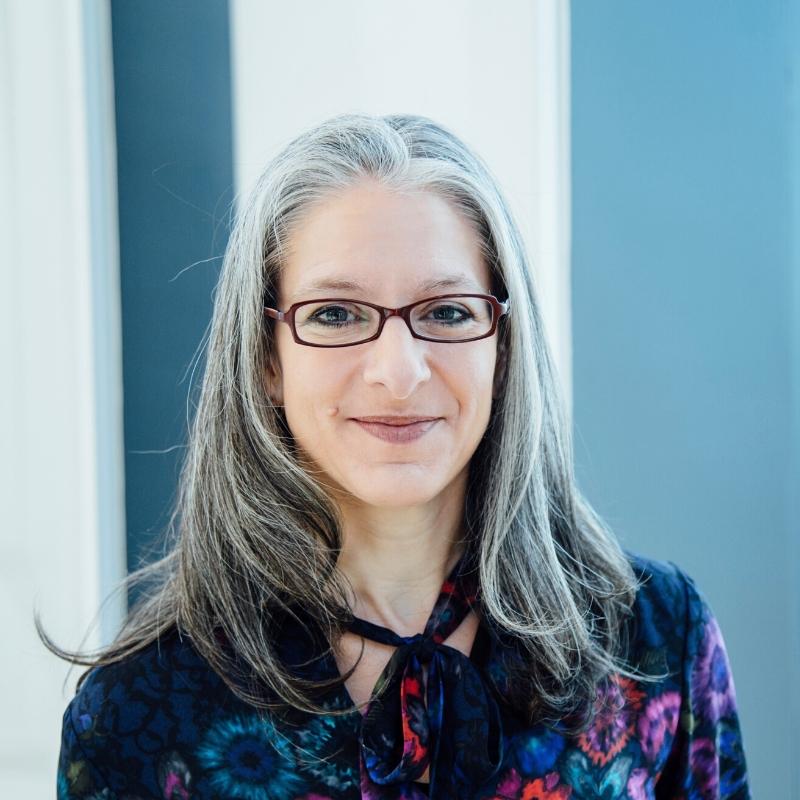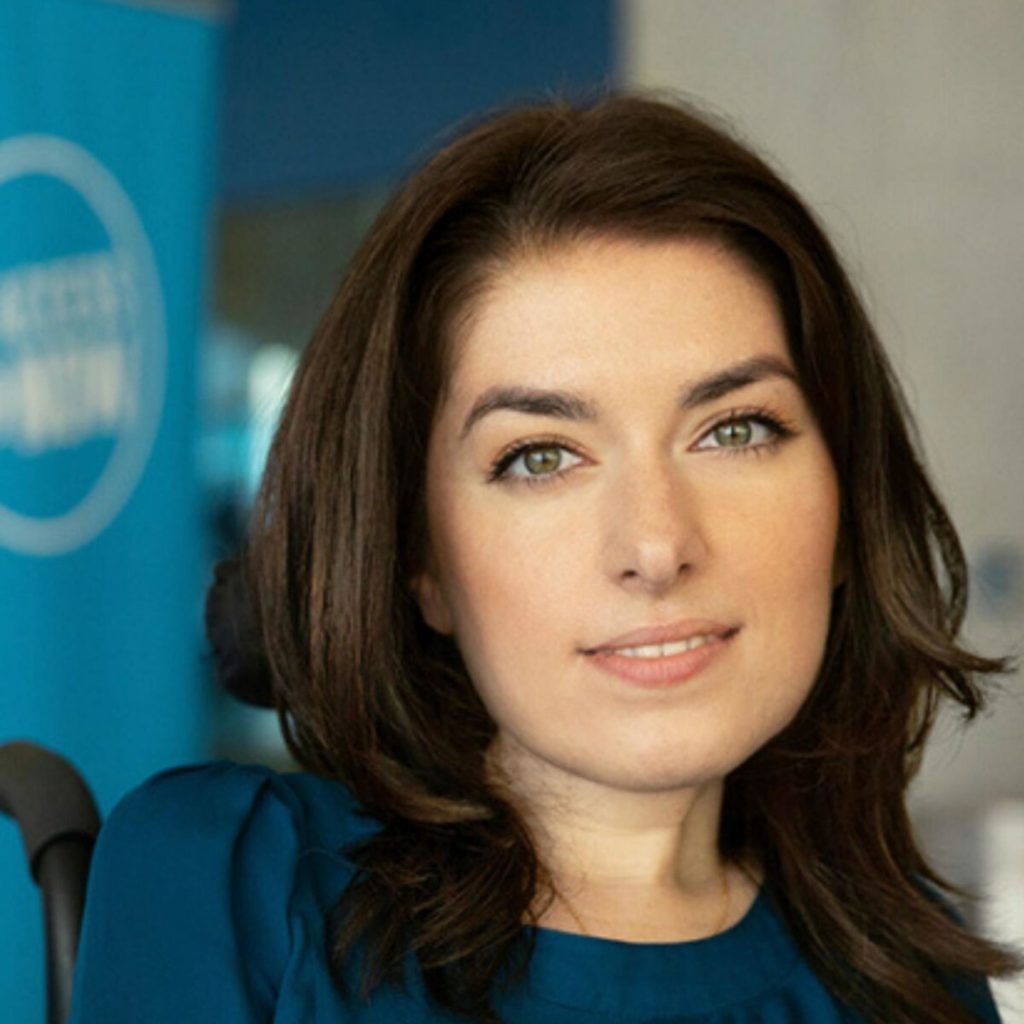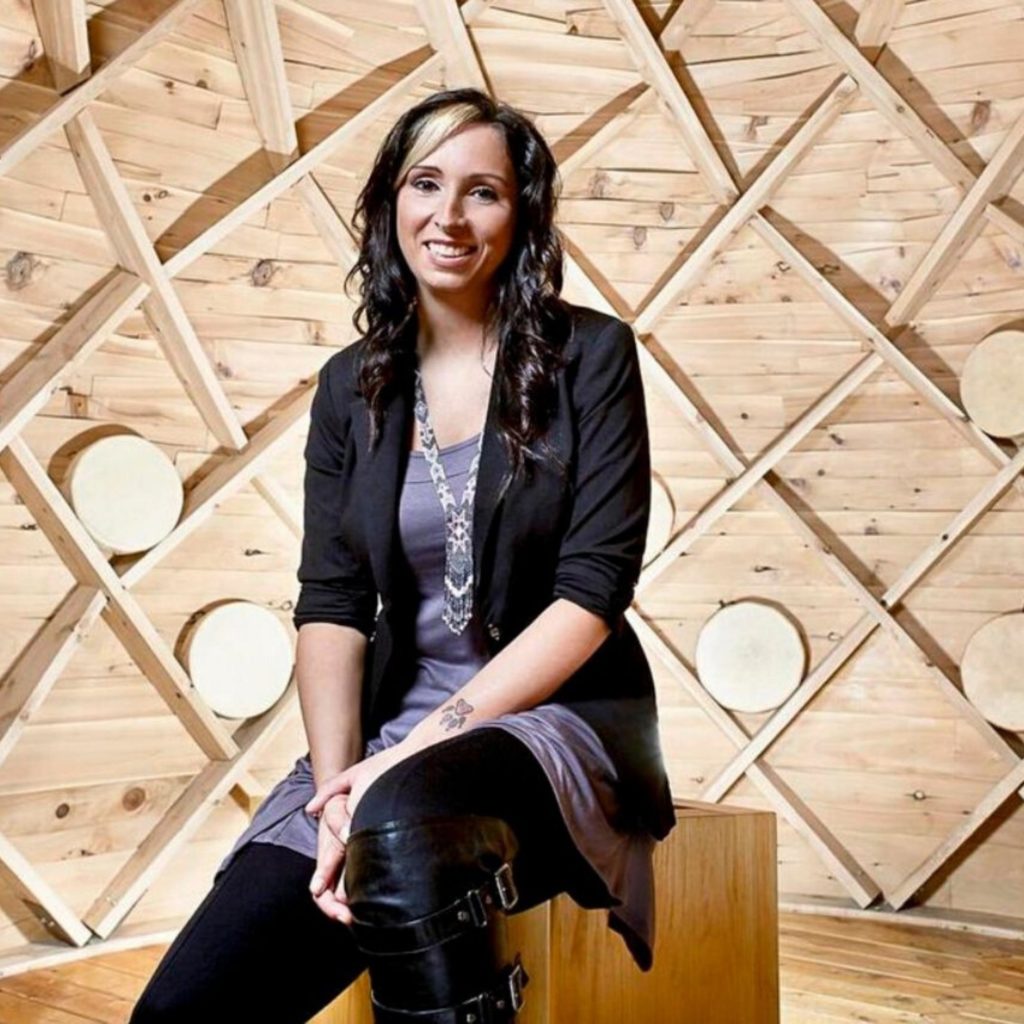By…
COVID has amplified existing disparities — but can it also play a role in addressing them?
Nine experts share the opportunities for change the pandemic has provided.
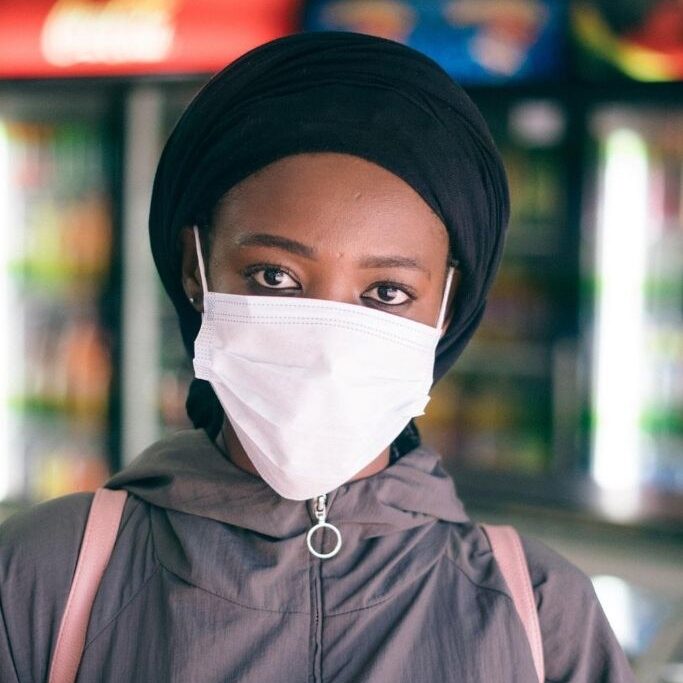
In the nearly-six months since COVID has been declared a pandemic, one thing has been made clear: we are not all in this together.
Since June, we’ve been interviewing advocates, community leaders, and experts to shine a spotlight on how the pandemic is disproportionately affecting marginalized groups, from Indigenous communities and Black communities, to people living with disabilities. Even with as broad a lens as gender, the disparities are apparent and unsurprising; on every measure, women are faring worse than men.
The common thread in these conversations? The disparities existed already, COVID has just made them worse.
It has also made them impossible to ignore — and that in itself could provide an opportunity for positive change.
As Sané Dube pointed out in our conversation on the two health crises facing Black people in Canada — COVID and Racism — the devastating and unequal effect of the pandemic helped build the case for race-based data collection in health, which advocates had long been lobbying for.
We’ve asked nine experts to share their thoughts on how the pandemic might be used to move us forward towards equality, rather than push us back. It’s not meant to be an exercise in chasing silver linings, but instead a starting point for change.
Highlighting the systems failing people and where we need investment.
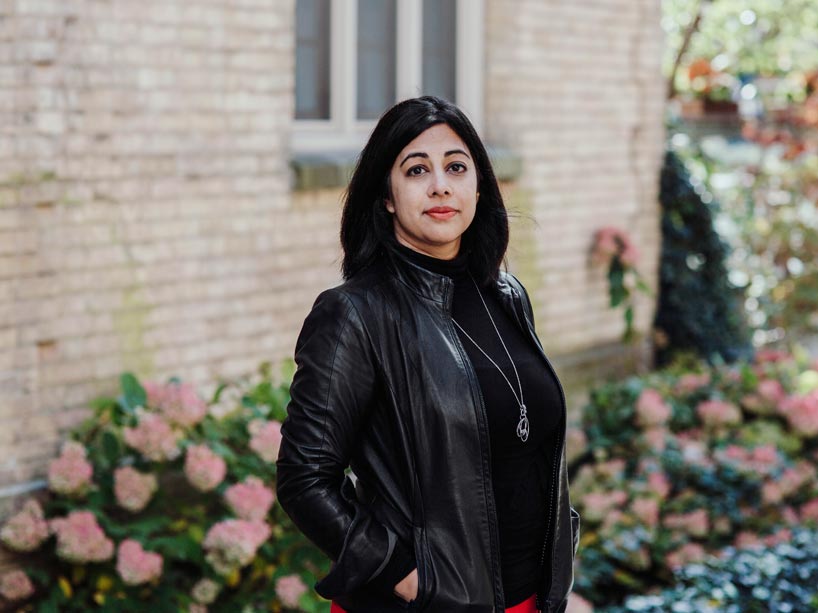
Maya Roy
CEO, YWCA Canada
In many ways, the COVID-19 pandemic has shed light on what was broken in our society. It showed us what parts of the social safety net are fraying, what systems are failing the people we serve, and how the social contract isn’t working for our most essential workers. This work is often done by Black, Indigenous, racialized and migrant women.
This moment has politicized many and pushed them to think about what we need to prioritize as a country. It has highlighted exactly what we need to invest in as a society: the social determinants of health. Public health measures advise us to wash our hands, and stay at home, especially if we’re sick. If that’s the case, we need bold investments and systemic change to ensure everyone has access to clean water, a safe and affordable place to live and paid sick leave. There is no turning back now. We’ve seen what the lack of investment in these public goods means for all of us. Now is the time to act.
We are also seeing a diverse range of employers finally embrace flexible work options. Gender equity and disability justice movements have been advocating for more just work arrangements for decades. Work shouldn’t make you sick and it should cater to your diverse needs, including flexibility to address the multiple roles you play in your life. That may mean accommodating your care responsibilities such as child care and elder care. It also means being an active member of your community. The increased civic engagement and interest in how our government works and for whom has been one of the most humbling aspects of this crisis.
Exposing systemic racism in the corporate world and the need to move from diversity to human equity.
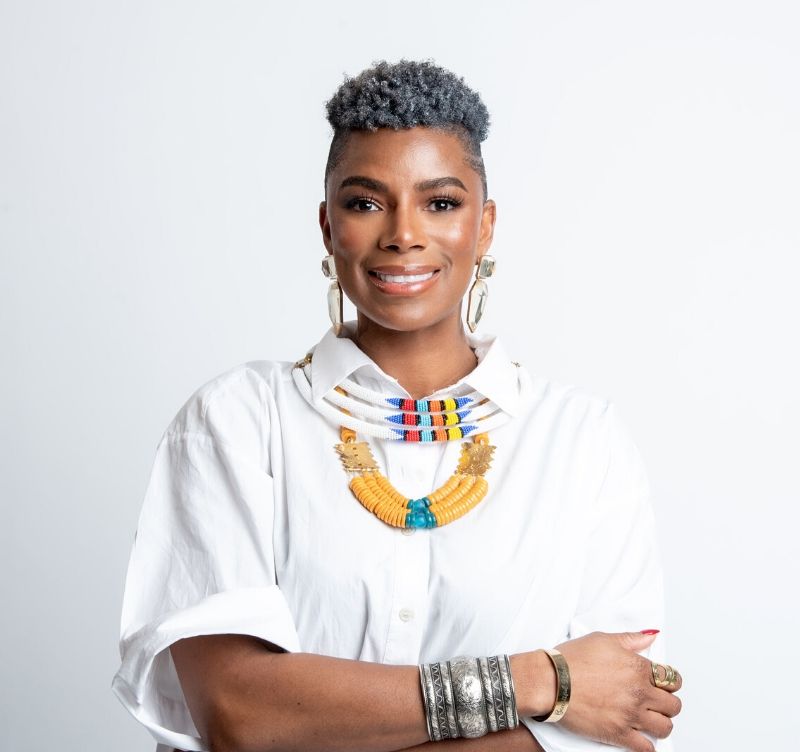
Karlyn Percil
CEO, KDPM Consulting
I believe that COVID showed us or exposed three things:
Leadership Complacency: The various ways leaders in all industries have been complacent and complicit in anti-Black racism. Inaction, reading off carefully crafted messages, and lack of accountability exposed the multiple ways organizations and leaders uphold systems of racism (many still believe that having an ERG or doing unconscious bias training is the answer). The lack of accountability on what it means to be an equitable and inclusive leader is evident through ‘one workshop’ requests or a rush to do something.
Dehumanization of Black lives at work: The lack of empathy extended to Black lives (several organizations I’ve spoken to have not created or prioritized psychological safety for Black employees or Indigenous or POC ). The dehumanization of Black lives in the workplace continues silently because many leaders have not registered or thought of the impact of racial trauma on the lives of Black employees. What will it take to humanize Black lives?
Emotional Fragility: Many organizations and leaders are on the lower spectrum of the Emotional Fragility – Resilience Continuum. White fragility shows explicitly up as fear of not saying something wrong has taken priority over doing the right thing (i.e. taking action)
We need organizations and leaders to shift to understanding that to create a workplace culture where Black and other racialized lives really matter — we need to move from diversity to human equity.
Human equity is a term coined by my friend and mentor, equity strategist Trevor Wilson. In his book, The Human Equity Advantage, Trevor defines Human Equity as: ‘talent differentiation and maximizing on the unique talents of every employee’s innate strength, unique abilities, personality, attitude, life experiences and virtues.’
Unfortunately, many organizations for decades have been creating policies and procedures rooted in inequitable systems that generally benefit or favour whiteness.
If we are to do the moral and ethical thing, leaders must upgrade not only the behavioural economics of their leadership competencies,; they must also do the work through action to understand what it means to be an equitable and inclusive leader.
Systems don’t dismantle themselves, people do. So to build back better, we need leaders who understand that a considerable part of building better, means that the power — be it position power, pay power or privilege power — must be shared with those who have not been seen, heard or given a decision making seat in the organization. It means that the dominant group’s culture — white culture and whiteness — must be examined, and the systems, processes, policies and procedures need to be dismantled and rebuilt through the lens of human equity.
Making space for new conversations that don’t always get the coverage they deserve.
Photo Credit: George Joseph
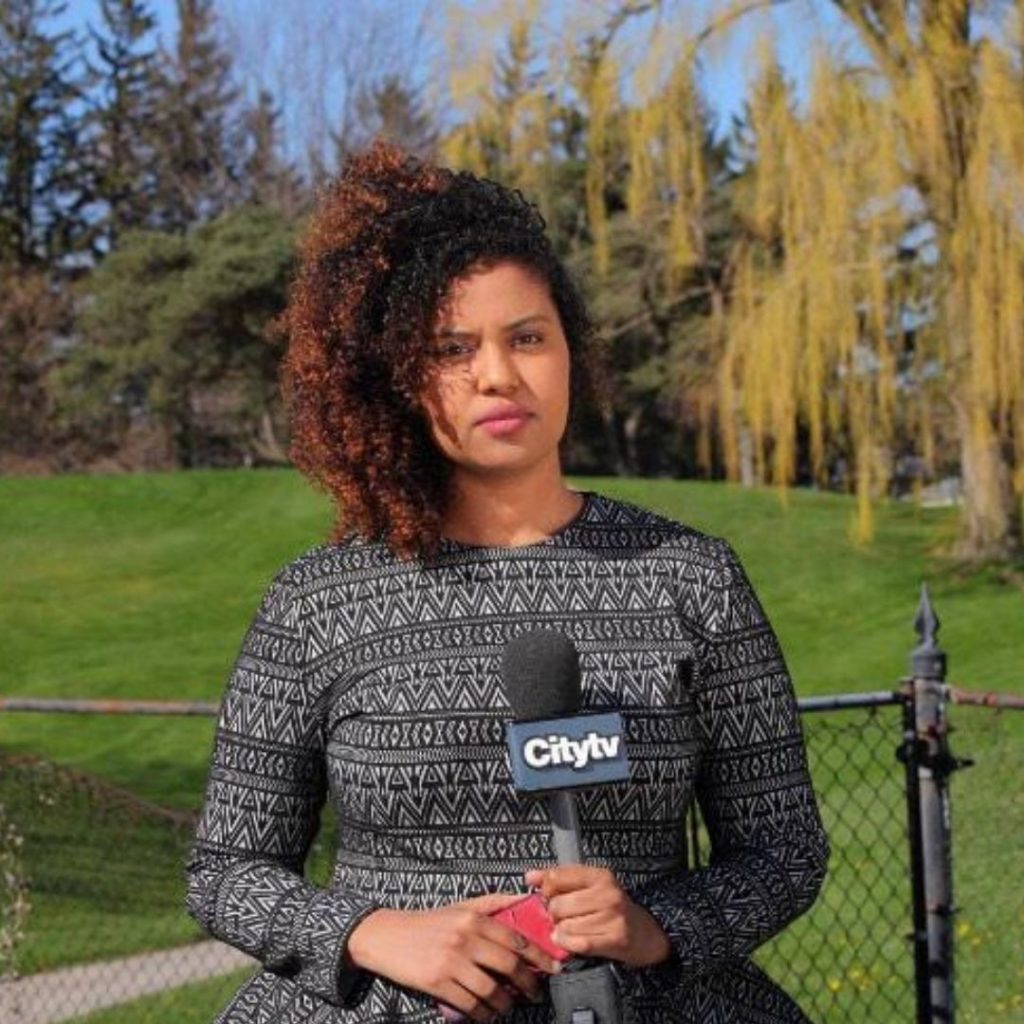
Faiza Amin
Faiza Amin, Journalist with CityNews
COVID-19 has touched everyone, but this is still very much an unequal pandemic. For decades, Black health leaders and advocates had been calling for the collection of race-based data, to better understand the experiences of Black people and racialized communities who are and aren’t navigating the healthcare system. Prior to COVID, many raised the alarm over how social determinants of health were impacting these communities, but during the pandemic, there were fears that those same factors would put marginalized groups at greater risk. That fear was confirmed when Public Health Units slowly began releasing data that showed Black and racialized communities were disproportionately impacted by the virus. Not that we needed the data to tell us the obvious, but now, the numbers show the scary realities of systemic racism in a way that can’t be ignored.
This is what health leaders and advocates spent months fighting for during the pandemic. But what if we listened to these voices right away? And we collected the data at the start of the pandemic? These questions are important, and they shed light on the need to make space for these conversations, that don’t always get the coverage they deserve.
It is my hope that this will change how we speak about systemic racism. It’s a reminder for all of us to take a step back, and continue to reassess the conversations we’re having surrounding issues and communities. Who has a seat at the table? Who aren’t we giving a voice to? Does this represent the community we serve? Whose stories are we not telling?
And what gives me hope, is the relentless work of leaders and advocates in our communities, who continue to push for what’s right and despite being told ‘no’ time and time again. They help to fuel much needed conversations in a way that creates the changes our communities need.
Showing men the importance of flexible work and the value of equity and inclusion.
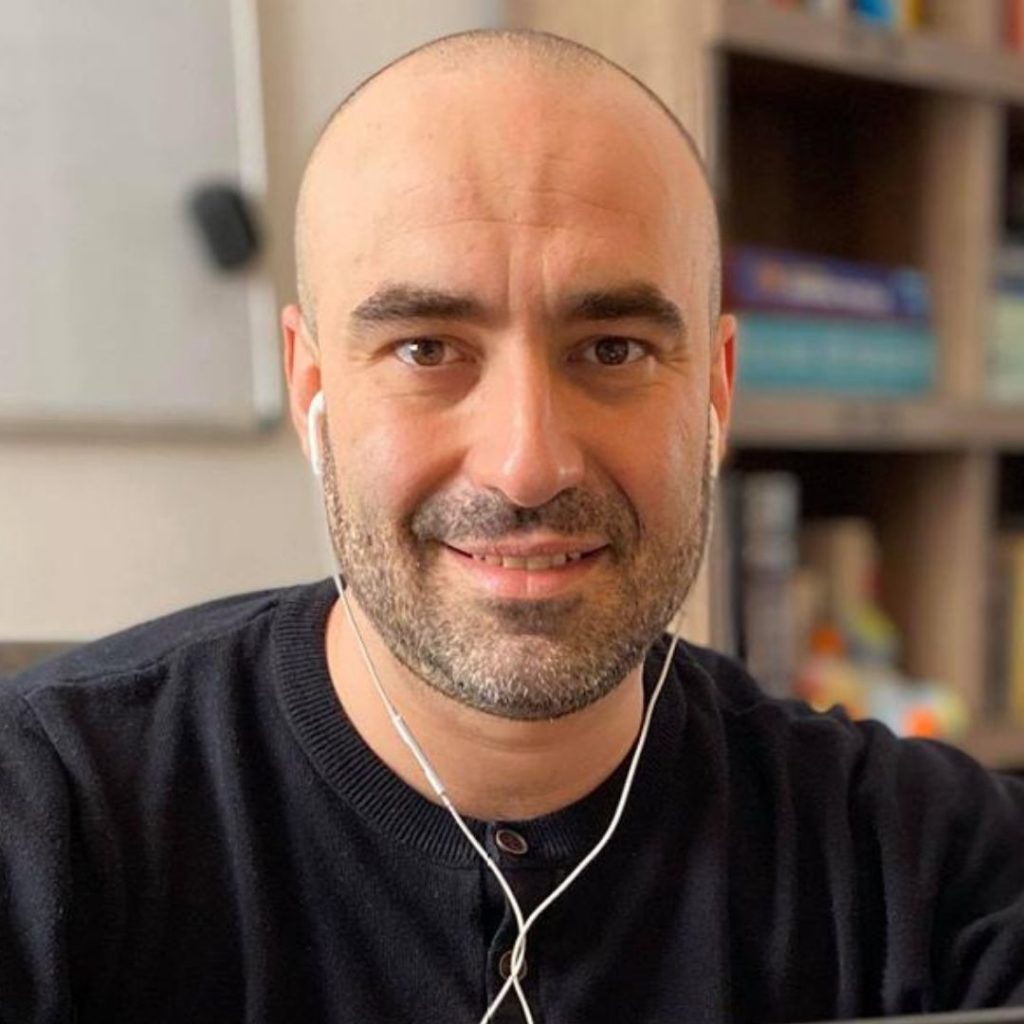
Ludo Gabriele
Senior Director, MARC (Men Advocating Real Change) Branding, Catalyst and Founder, Woke Daddy
I think a positive change is that the superficial line that exists between professional lives and personal lives is going to disappear — because right now, everything lives together. I think the pandemic is blurring this imaginary line, and when you personalize each second of your work, this is where inclusion and psychological safety are very critical. We won’t be able to completely go back, because I think so many people have made very meaningful connections with one another.
I also think that men are witnessing the importance of flexible work and flexible workplaces. Men who are living with a woman at home, they’re seeing how much they’re handling during the pandemic, especially if they’re working at the same time. I think many men, especially those who go out to work, may not have the awareness of what is involved in running a household when they’re away. The fact that many of us have had an immersion in what it takes, this is something that won’t necessarily go back to normal, because we cannot unsee what we have been witnessing for the past few months.
We’re also being shown the importance of embedding flexibility, equity and inclusion as a culture, because what we see is that the more robust and sustainable organizations that have equity, inclusion, and flexibility are the ones that are navigating the pandemic the best. They’re embedding those values along with psychological safety, instead of just checking a box. Having this cultural shift, this new cultural mindset, is something that will hopefully live on.
Creating new opportunities with remote work especially for those living with disabilities.
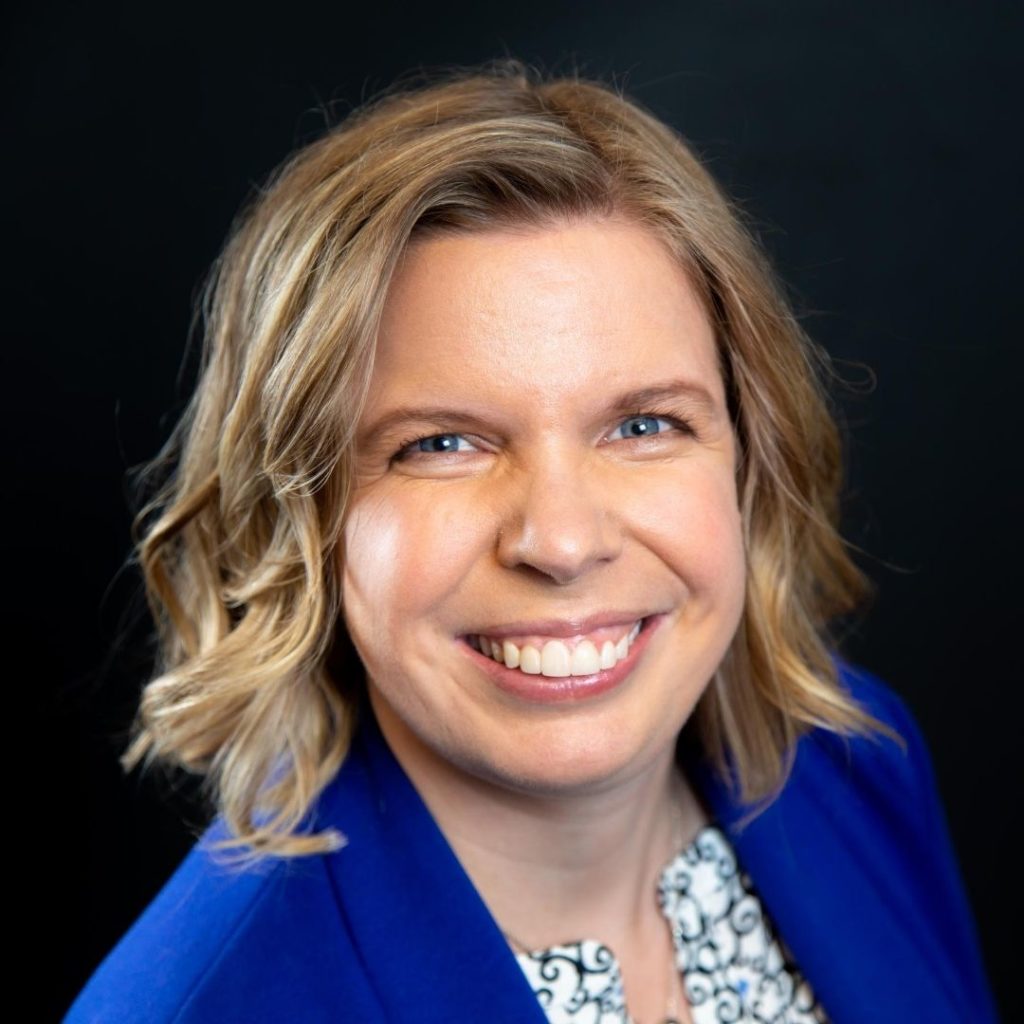
Darby Young
Founder and Principal Accessibility Strategist, Level Playing Field
The biggest lesson we’ve all learned is that people can work remotely — and that does give people with disabilities the ability to work. It overcomes what always seems to be the biggest issue, which is that the majority of workplaces aren’t accessible. It can also help with prejudice. A lot of the time, when people see persons with disabilities, they don’t give us a chance.
That’s not to say it’s without issues. In stakeholder discussions we’ve conducted, we’ve seen how remote work presents challenges for individuals with hearing loss or vision loss. Organizations still need to figure out how to manage remote work well, to address these and other issues.
But they will have to find a way to adapt. With COVID, companies are learning how to shift — because they’ve been forced to do it.
Making innovation necessary, which could lead to greater inclusion.
A few things give me hope, including this broader conversation about care work. We’ve known for 30 years that childcare is the secret to women’s advancement in their jobs, and now we’re talking about how the secret to economic recovery is going to be childcare — it gives me some hope that we might actually get a universal child care solution. That would be great.
The second thing that gives me hope is that we all got thrown into a period of experimentation. We had been talking for years and years at the Rotman School about doing some online education, and there was resistance to that change — and then from March 13 to March 16, we transferred the entire in-person experience to online. We’re seeing similar things in all sorts of companies; between experiments with collaborative work, and different tools, we may come up with a better way of working.
We’re also able to include so many more people at work than we were ever able to include before. For example, people in smaller communities — for example in the Canadian north — can now get a remote job at a big corporate in Toronto, get the advantage of that salary, and the advantage of staying in their communities. And many of the things that we have ended up doing because of the pandemic have been things that people with disabilities have been requesting for years. We can still do a better job of including people with disabilities — virtual meetings can be harder for people who have a vision impairment, or people who have a hearing impairment if they can’t read people’s lips — so it’s not perfect, but I see all kinds of experimentation leading us to think about ways of work that could actually be much more inclusive, and that gives me hope.
Opening up the lines of communication and including more voices.
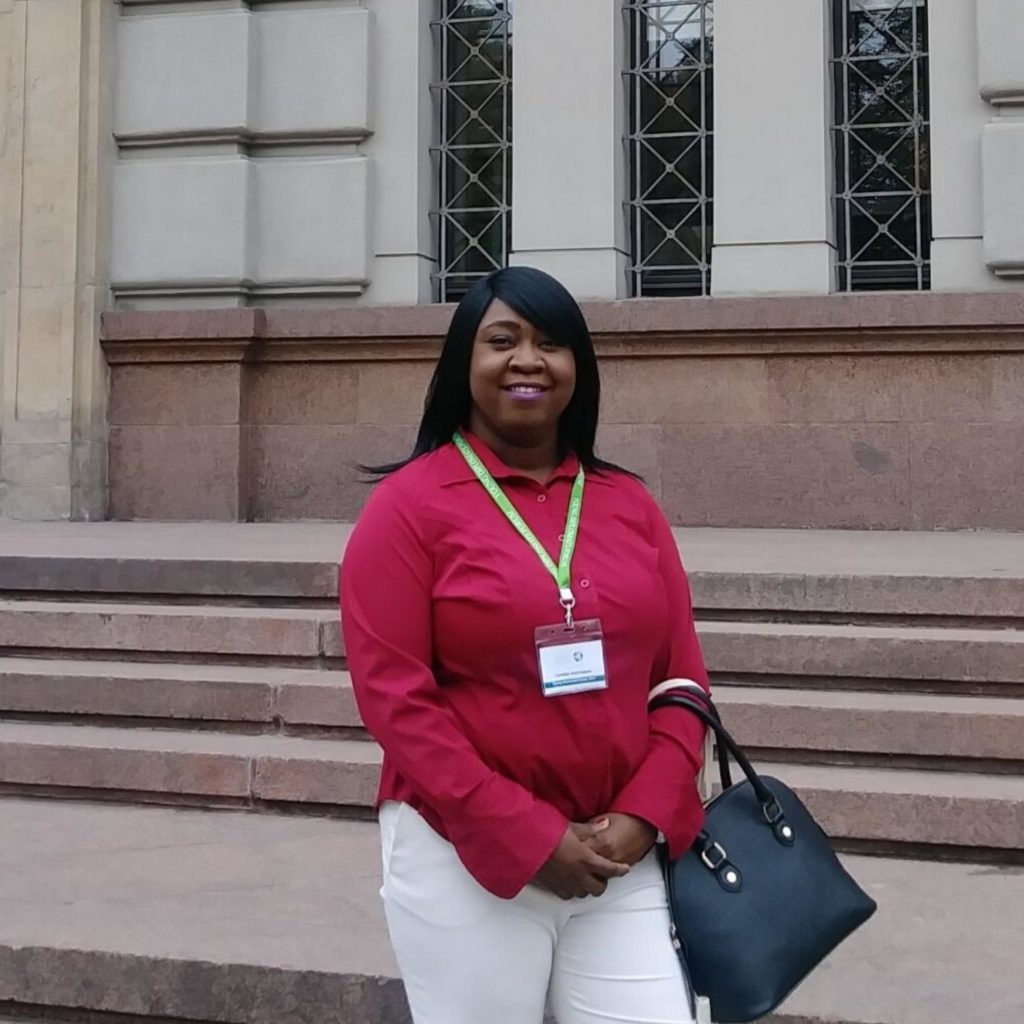
Candies Kotchapaw
Founder & Executive Director, Developing Young Leaders of Tomorrow, Today (DYLOTT)
Even in all this horribleness, all the terrible, tragic impact that COVID has brought with it, I would be remiss if I didn’t say that COVID has brought many opportunities for people who are Black and for people to collaborate. I think the biggest positive that I can take from COVID is that it has opened up the lines of communication, where I think they were locked or non-existent before. Even through social media, there’s access to people that I think before as a Black person I would have never had the opportunity to engage with.
The other major thing that gives me hope is that people are recognizing the value of contribution from Black communities. They are recognizing that there is capacity for agency within Black communities. And they are recognizing that there are a plethora of experiences that are valuable.
Now, the spotlight is being shone on our communities, and we’re saying, ‘Hey, there’s an opportunity for self-governance. There’s an opportunity for economic independence. There’s an opportunity for collaboration on a level that there has never been.’ I’m certainly very happy for that.
Connecting more authentically and growing empathy for others.
I honestly think that it boils down to empathy. I think when there is a sense of empathy we react differently, and we’re kinder to each other, and we are more thoughtful about our actions. I think we’ve been given the opportunity to empathize with another person’s fear, another person’s reality. People start meetings with a meaningful ‘how are you?’ — it is not necessarily something we would have seen in the past, but is a chance to connect with another person, authentically.
Having that kind of human element, we have a unique opportunity to now grow from this experience, and I hope that we do. Human tendency is to get these new paths and then eventually forget about them and go back to the old ways. I hope that that’s not going to be the case. I think we have an opportunity to learn from this, and to invest in a future that is welcoming and inclusive.
Showing Canadians Indigenous strength, resilience, and leadership and an added call to support sovereignty
The hope that I see is the ways in which specifically First Nations and Indigenous women have addressed murdered and missing women and girls, land-based protests and land-based defense, and even this pandemic — by asserting their own sovereignty. And we may be doing so in an underfunded capacity, in a marginalized, oppressed capacity, in a context of ongoing genocide and pandemic risk — but we continue to show our strength, and our resilience, and our leadership, and our commitment to our sovereignty as nations, to continue to do this for our people.
There are literally a thousand stories of Indigenous women and girls serving their communities. They’re the most underserved, but they’re out there volunteering for elders, they’re cleaning, they’re bringing supplies, they’re advocating. They’re literally on the front line. And there are still women out there on the front lines of land defense and that’s where I find my hope. In the assertion and defense of our sovereignty and our territory, despite the overwhelming and monumental barriers, and the risk to our lives.
It’s really important that we get these stories out, and show Canadians that this is where hope is, supporting Native people in asserting and defending their sovereignty and territory, and the right to make decisions for themselves, that’s what will get us out of this. Canadians are starting to see that the things that we were advocating for and protesting against were the very same things that were going to benefit Canadians. So when we’re trying to defend clean water for First Nations, that’s actually a benefit to all Canadians, because we’re not going to live very long without clean water or farmable land. And similarly, when we’re defending human rights and civil liberties, that’s for everybody. And it’s a very slippery slope to say it’s okay to breach those rights for Native people, now it’s okay to breach those rights for Black people, now it’s okay to breach those rights for immigrants, now it’s okay to breach those rights for poor people — it never ends, and so we have to have an absolute stop against the breach of human rights, and that benefits all Canadians.
What do all these opportunities have in common? That they are no more than opportunities, which can be wasted without determined action. Unless we are willing to address systemic inequality, and innovate and rebuild with inclusion in mind, our ‘new normal’ won’t be any better — and possibly far worse — than where we started six months ago.
What will it take? A commitment that goes beyond public statements or check-the-box inclusion practices. Working with marginalized communities to address systemic issues, rather than prescribing band aid solutions to mitigate the effects of inequality. There needs to be listening and learning, and we must overcome the fear — and eradicate the backlash — of uncomfortable conversations. We must approach this with all the effort, resources, thought, and care that building a new system demands.
It will be hard to do it right, and easy to get discouraged. So we cannot forget this: we’ve never before had so many opportunities presented that can help us on the road ahead. Let’s not waste our chance for change.
By…
Meet Nadine Bernard, the Entrepreneur Bridging Indigenous and Corporate Canada, and RBC Canadian Women Entrepreneur Awards Micro-Business Winner
By…
How One New Brunswick Entrepreneur Built on a Family Legacy to Lead in the Automotive Industry
By…
The 9 Saboteurs Holding You Back — And How to Overcome Them
By…
How Do You Scale a $5,000 Idea Into a National Brand? This Entrepreneur Did Just That
By…

